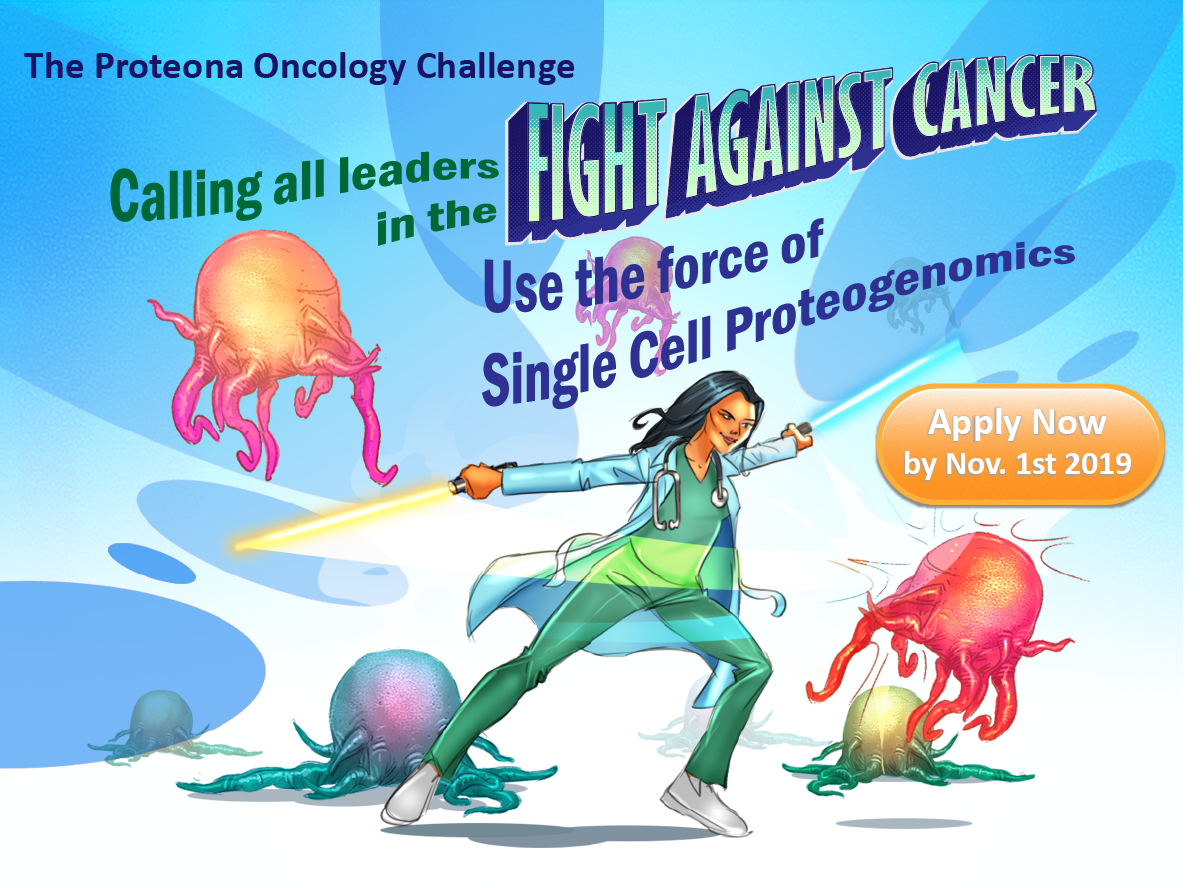Proteona Oncology Challenge using ESCAPE™ Single Cell Proteogenomic Analysis
24 September 2019 | News
Innovative AI-driven genomic and proteomic analysis platform for improving cell therapy and immuno-oncology

Photo credit: Proteona
Proteona Pte. Ltd. has announced the launch of the first Proteona Oncology Challenge, co-sponsored by NovogeneAIT. All scientists and clinicians working to solve major clinical problems in oncology are welcomed to submit abstracts on how they would use ESCAPE™ RNA-Seq single cell proteogenomic analysis services. The winner will be awarded up to $50,000 worth of single cell analysis services from Proteona and NovogeneAIT, which includes ESCAPE™ RNA-Seq single cell data acquisition and access to Proteona’s AI analysis tools. Applications are open now at www.proteona.com/Challenge.html until 1st of November 2019.
Cancer treatment has progressed tremendously in the past decade. New approaches, such as immune-therapies, cell therapy, and personalized treatment, are becoming increasingly sophisticated and can potentially significantly improve clinical outcome. There is, however, more work needed. Clinicians and scientists are looking for better ways to address issues such as patient-to-patient variation, tumour heterogeneity, adverse effects, and the dearth of predictive biomarkers that can guide clinical decision making.
Multi-omic single cell analysis technology, combined with state-of-the-art data analysis tools, provides a powerful platform to elucidate the heterogeneity and complexity of biology. Enhanced Single Cell Analysis with Protein Expression and RNA Sequencing (ESCAPE™ RNA-Seq) is an innovative platform for obtaining protein and gene expression information from the same single cells. By clustering cells using well-characterized protein surface markers, it adds essential cell phenotyping information to single cell RNA-seq data, therefore providing an in-depth understanding of cell populations and their functionalities. ESCAPE™ RNA-Seq enables deep characterization of clinical samples such as solid tumors, liquid tumors, and cell therapies, where heterogeneity is key to understanding the diverse cell populations and differential treatment response.
“There are a lot of great ideas out there on how single cell multi-omics analysis can solve real clinical problems. We want to help putting them into action. By providing some additional resources, we hope to help clinical researches to get over the initial technical and financial barrier so that they can make full use of this powerful tool to make a difference in future cancer treatment,” says Dr Andreas Schmidt, CEO of Proteona. “We will work very closely with the challenge winners and support them both on the wetlab and bioinformatics side.”












